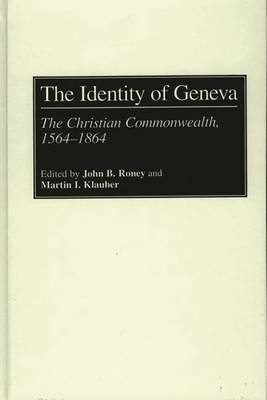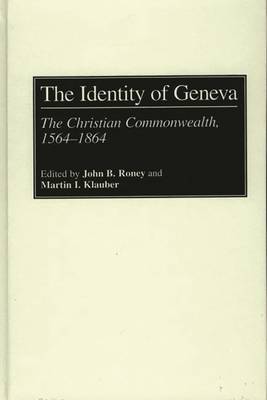
- Retrait gratuit dans votre magasin Club
- 7.000.000 titres dans notre catalogue
- Payer en toute sécurité
- Toujours un magasin près de chez vous
- Retrait gratuit dans votre magasin Club
- 7.000.0000 titres dans notre catalogue
- Payer en toute sécurité
- Toujours un magasin près de chez vous
Description
Although the initial effects of the Reformation in Geneva differed little from those in other free cities in early 16th century Europe, the movement was distinguished by the leadership of John Calvin, who offered a clear theological system and encouraged international connections through education, missions, and printing. By Calvin's death in 1564, Geneva's international reputation and leadership were at an all-time high. Calvin's theology, polity, and spirit would remain as the core of Genevan identity. However, in the early 19th century, the Catholic population would outnumber the Protestant, and Geneva could no longer claim to offer international, Calvinist leadership or even religious solidarity.
This volume contains essays on selected aspects of Genevan identity from the mid-16th to the mid-19th century. It begins with the origins of the image of Geneva, follows the city from the time of Calvin's death, and concludes with the transformation in Genevan identity that would accompany its demographic shifts. From its time as a Protestant republic in which Genevans envisioned themselves as a new community of God's chosen people who found mutual support in religious, political, and social enterprises, Geneva would come to follow a new model of political unity based on a broader Christian foundation, which would respect plurality and international cooperation.
Spécifications
Parties prenantes
- Auteur(s) :
- Editeur:
Contenu
- Nombre de pages :
- 248
- Langue:
- Anglais
- Collection :
- Tome:
- n° 59
Caractéristiques
- EAN:
- 9780313298684
- Date de parution :
- 19-03-98
- Format:
- Livre relié
- Format numérique:
- Genaaid
- Dimensions :
- 152 mm x 236 mm
- Poids :
- 494 g

Les avis
Nous publions uniquement les avis qui respectent les conditions requises. Consultez nos conditions pour les avis.






